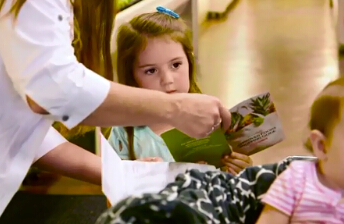A new study found half of U.S. kids live in or near poverty, and that can have a big impact on long-term health. But the American Academy of Pediatrics says there might be a way to help.
一項新的研究發現,一半的美國孩子生活在或接近貧困,這對長期健康有很大的影響。但美國兒科學會表示有可能幫助的方法。
AAP says physicians asking patients a simple question like "Do you have difficulty making ends meet at the end of the month?" during a checkup could help identify and chip away at mass poverty.
美國兒科學會稱醫生詢問病人一個簡單的問題,例如“到月末你會入不敷出嗎?”檢查可以幫助識別和消除普遍貧困。
By asking these types of questions, AAP hopes pediatricians will be able to connect families to resources to help with necessities, like balanced nutrition and affordable housing.
通過問這類問題,美國兒科學會希望兒科醫生能夠聯系家庭獲得資源,如營養均衡和經濟適用房。

When kids are born into low-income households, they are more susceptible to heath issues, which can include obesity, infant death and even altered gene expression.
當孩子出生在低收入家庭,他們更容易受到健康問題影響,包括肥胖、嬰兒死亡甚至改變基因表達。
AAP also recommends support for legislation and funding for improving overall well-being, like raising the minimum wage.
美國兒科學會還建議支持立法和提高整體福利,如提高最低工資標準。
AAP President Dr. Benard P. Dreyer said: "Fifty years ago, the U.S. came together and nearly eliminated poverty in the elderly. It's time to do the same for children."
美國兒科學會主席德雷爾博士說:“五十年前,美國團結在一起,幾乎消除老年貧困。是時候為孩子做同樣的事。”
譯文屬可可原創,僅供學習交流使用,未經許可請勿轉載。











